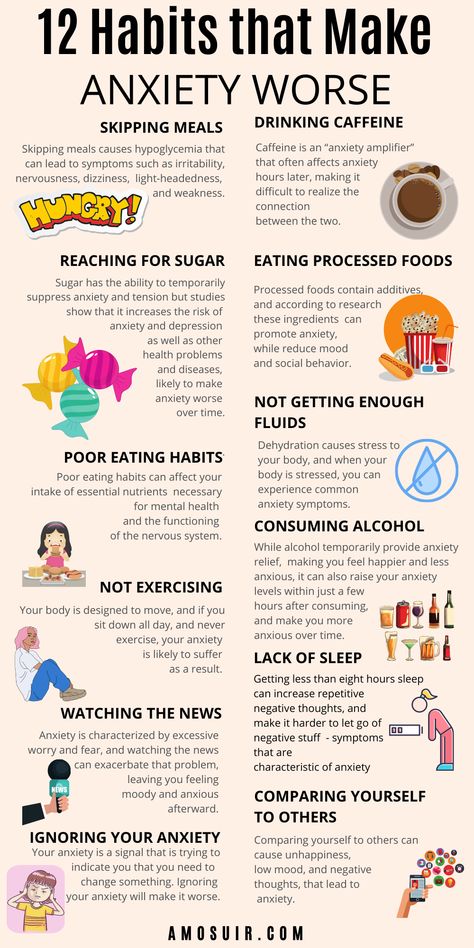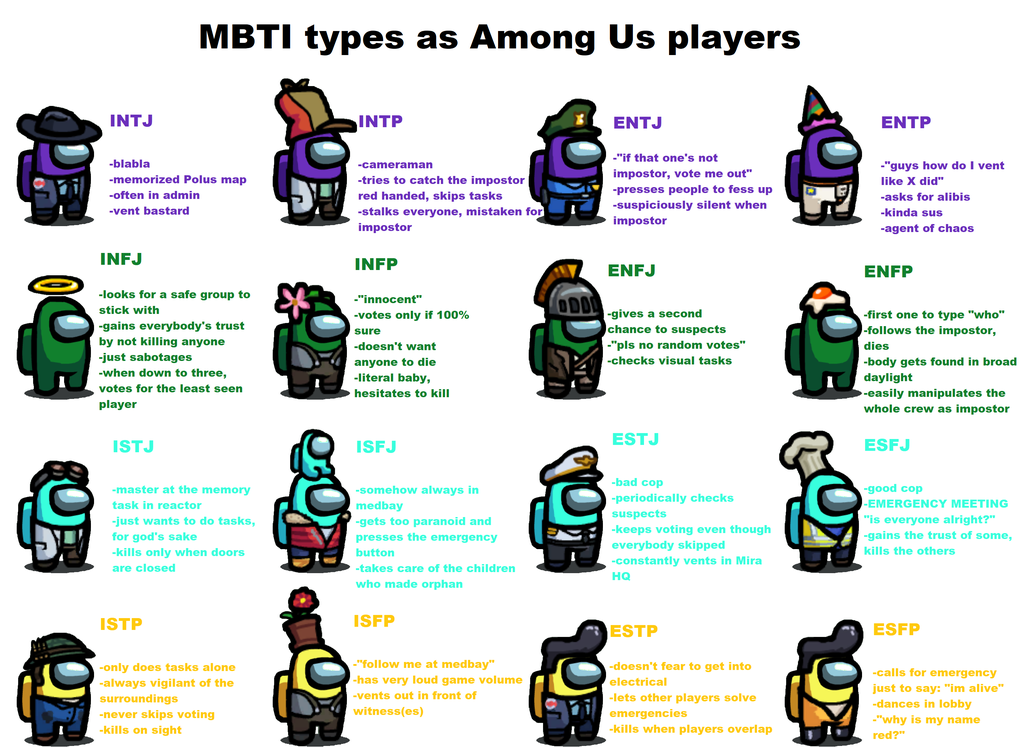Friends in crisis
Friends in Crisis: What to Do When You Don’t Know What to Do
Ding! Oh... a text.
“Hey, in about three days, I’m going to need some help with an overwhelming event. I’m going to be diagnosed with a serious illness, and I’ll have no idea what to do. I’ll be devastated, and I’m really going to need your help. I wanted to give you a heads up, so you could have some time to think about it, clear your head and your schedule. Then I’ll need you to come up with the perfect response to make me feel better and for you to feel like a perfect friend.”
You’ll never get a text like that.
When tragedy strikes someone you love (and unfortunately it will), it comes suddenly and hard. Most likely, it will knock you off your feet (not to mention what it will do to your loved ones).
Sometimes you’ll have no idea what to say or what to do. You’ll feel helpless. As a psychologist, I have years of training in helping people through tragedy and struggles. But sometimes all that flies out the window. There are times when my friends reach out to me, and I have no idea what to do.
I remember when I was a second-year clinical psychology student at the University of Michigan. One day, after a particularly chaotic session, I went to my clinical supervisor hoping for some advice about what I should have said to my client. My supervisor provided an option, and I remember scribbling it down so that next time it happened, I would know exactly what to say. I wanted a formula.
Thing is... life doesn’t work in formulas. You never know when a tragedy is coming on, and sometimes you aren’t really prepared to know exactly what your client or loved one will need. But there are some things that, more often than not, will help. Here’s your cheat-sheet of five tips to keep in mind when you don’t know what to do to help out a friend in crisis.
1. Be patient: Keep your feelings in check.
Sometimes you will be focused on wanting the other person to feel better or to take away their pain. In some ways, this is because you are in pain because they are in pain. Listen and give the other person a chance to express what they need to express without judgment.
In some ways, this is because you are in pain because they are in pain. Listen and give the other person a chance to express what they need to express without judgment.
Psychologists call this emotion-focused coping rather than a problem or solution-focused coping. You may be ready to offer up a solution, but they might not be ready to hear one yet.
2. Give me a break!
Even if a loved one comes to you with a problem or concern, it doesn’t mean they want to talk about it all the time. Sometimes they want to be distracted from their crisis. Humor can be helpful. Maybe it’s a piece of funny news, a favorite video, or even or a random joke.
3. Show up.
Be present. Acknowledge that they are going through something difficult and that you are there for them. Just being there for a friend can be comforting.
At the time, you might not feel as if you are doing anything significant. However, having someone around when you are going through a painful experience can be incredibly supportive. For chronic events like grief or long illnesses, it can be even more important in the weeks and months to come. Be sure to continue to check in as time goes by.
For chronic events like grief or long illnesses, it can be even more important in the weeks and months to come. Be sure to continue to check in as time goes by.
4. Be specific with your help
“Is there anything I can do to help?" is something most everyone asks when a friend is having a hard time. Asking to help is useful, but if there are specific things you do for them, offer that. Do you bake cookies? Can you drive them someplace? Take them out to eat? But be flexible if they change their mind.
5. Care for yourself.
And don’t forget to take care of yourself. It’s important to remember that your loved one's emotions can trigger your emotions too. Anger, grief, depression, and anxiety can create negative emotions in the people who are around these emotions. If you find that you are the emotional caretaker for lots of people, be sure to look for signs of caregiver burnout in yourself, such as withdrawal, emotional exhaustion, and changes and sleep patterns.
So, you might not get a text to warn you ahead of time, but if you are in a situation where a loved one is in need, and you aren’t sure what to do, keep these five things in mind, and you'll be pointed in the right direction.
©2019, Kenneth Carter. All rights reserved
What to Say to Friends Going Through a Crisis
If a friend is going through a crisis and approaches you for support, focus on listening, and avoid these two words.
iStock/AntonioGuillem
When a friend approaches you in the heat of a moment, it can be hard to know what to say. There’s no blanket approach for every person through every crisis, like the Covid-19 pandemic, but a few guidelines could help you offer the best support. Plus, check out the ways to solve common friendship problems.
Reframe “why” questions
Friends going through a crisis often just need someone to vent to and explore their feelings with, but the trick is to listen without sounding like you’re judging. Reframe “why” questions, which can imply you’re questioning their judgment, says Nancy Lublin, CEO of Crisis Text Line, a support line that connects those in a crisis to a counselor via text. “‘Why’ questions are kind of judgy and seem patronizing, but ‘how’ and ‘what’ questions, and ‘who’ and ‘when’ seem genuinely caring and inquisitive,” she says. For instance, ask loved ones how they felt about an experience, rather than why they felt that way.
Reframe “why” questions, which can imply you’re questioning their judgment, says Nancy Lublin, CEO of Crisis Text Line, a support line that connects those in a crisis to a counselor via text. “‘Why’ questions are kind of judgy and seem patronizing, but ‘how’ and ‘what’ questions, and ‘who’ and ‘when’ seem genuinely caring and inquisitive,” she says. For instance, ask loved ones how they felt about an experience, rather than why they felt that way.
(Here are 9 clear signs you’re in a toxic friendship.)
Open-ended questions that can’t be answered with a “yes” or “no” will also help friends dig into their deepest feelings during a crisis. While your loved ones talk through their replies, practice active listening by focusing on their answers—not distracting yourself by listening for a break or thinking about how to respond, says Michelle Kuchuk, manager of clinical technologies and training with Vibrant Emotional Health (formerly the Mental Health Association of New York City). If this sounds like second nature to you, you could be an empath. “Traditionally, we listen for our own agenda—not in a cruel way, but it’s human nature,” she says. “Part of the beauty of active listening is it’s preventive and takes the pressure off someone struggling with something, and is not necessarily ever going to fix a problem.” After all, sometimes we just need to be listened to and validated, rather than to be given active advice.
If this sounds like second nature to you, you could be an empath. “Traditionally, we listen for our own agenda—not in a cruel way, but it’s human nature,” she says. “Part of the beauty of active listening is it’s preventive and takes the pressure off someone struggling with something, and is not necessarily ever going to fix a problem.” After all, sometimes we just need to be listened to and validated, rather than to be given active advice.
(Check out these 13 expert tips to cope with depression during coronavirus quarantine.)
Avoid telling friends how they “should” feel
When you do respond, avoid telling friends in crisis how they “should” be feeling. For instance, telling loved ones that they should feel strong when they’re feeling weak and ashamed could suggest those low moments aren’t acceptable. “‘Should’ is an invalidation, saying it’s not OK for you to feel these societally ‘weak’ feelings,” says Kuchuk. “If you’re only hearing ‘you should feel great,’ you’re never going to speak the truth again or get that weight off your chest if you think other people will judge you. ”
”
On the other hand, tying those positive feelings to a specific action can feel more genuine. If friends hear “you’re so strong” without an example to back it up, they might never believe it. But if they’ve been explaining how hard it was to talk to someone else, praise them for taking that brave step. “People say, ‘you’re strong and brave,’ but if you don’t feel that way at all and it’s not specific, it can feel really general,” says Kuchuk. “Make sure those words aren’t disingenuous and they’re based on something you can observe and see.” Praising friends on a smart decision or commenting on how proud they sound reaffirms their strength so they can discover how those coping skills help during a crisis, adds Lublin.
(Here’s how friends can help relieve stress and cope.)
Mirroring your friends’ emotions can also help prove you’re there to listen without judgment. Just don’t use the same words your friends do, or it will feel like you’re just repeating what they said. “Give a word back in response that’s one level deeper. If they say ‘I had a bad day,’ I’ll say, ‘I’m sorry your day was so rough,’” says Lublin. “It’s a way of showing you really swallowed what they had to say.”
If they say ‘I had a bad day,’ I’ll say, ‘I’m sorry your day was so rough,’” says Lublin. “It’s a way of showing you really swallowed what they had to say.”
Final tip
Ultimately, it’s more important for a friend to know you’re there for support than worrying about saying the right thing during a crisis. “If you’re trying to be a therapist or counselor, it can feel uncomfortable for a friend going through something,” says Kuchuk. “Just be a friend and really listen to that person, not with your own agenda but ‘what is this person really going through?’” Next, brush up your skills on how to be a better listener.
"There are few friends." Psychologist about midlife crisis
We will all be old someday. Someone does not care about age - it will be and will be, but someone is very worried about how to live when youth has passed. There is also a third category of people - right now they are thinking about how to help their parents, who have entered the stage of the "third age". We are talking about support not so much material as moral. How often do we see a picture that a person retired, began to get sick more often, feel sad more, think about death and, perhaps, even wait for it ...
We are talking about support not so much material as moral. How often do we see a picture that a person retired, began to get sick more often, feel sad more, think about death and, perhaps, even wait for it ...
With a question about how to prepare for old age, live it fully and happily, Tengrinews.kz turned to a polymodal psychologist, an official teacher of the Professional Psychotherapeutic League Tatyana Kuroyedova from Taraz. However, everything turned out to be not so simple: in order for “old age to be a joy”, it is necessary that all life crises and the midlife crisis be lived “correctly”.
Therefore, the material is divided into two parts: in this we find out what changes are normal between the ages of 35-50, what are the benefits of a midlife crisis and why it is so important to be flexible. In the second - how to gently enter into a new time for yourself of the "third age" and live actively both after 60 and after 80 years. nine0003
- Tatyana Nikolaevna, you are an existentially oriented psychologist. Can you explain to readers what this means?
Can you explain to readers what this means?
- The existential theme is the questions of life and death, one of the basic facts of human existence. Existential analysis explores the specifics of human existence. Let me explain: each of us at one time will meet with themes common to all people: reality and its impermanence, with deep pain, with loneliness and the finiteness of our lives. And each of us has unique, specific problems. As a person grows older, the world around a person expands, calm periods of life are replaced by peak, crisis experiences, the meaning of which is the transition to a new stage of development. nine0003
- People are afraid of crises. Psychologists say that it is completely in vain. Like, the crisis is good.
- Psychotherapist Eric Erickson proposed a theory of human development. In his opinion, in the development of personality there are certain mandatory steps that all people go through. Each rung of this ladder of development necessarily ends with an internal conflict, the favorable resolution of which allows a person to move on to a new stage of life. Without the first childhood crises, we would still be lying in cradles and could not become upright, we would never be able to learn to speak and understand human speech. nine0003
Without the first childhood crises, we would still be lying in cradles and could not become upright, we would never be able to learn to speak and understand human speech. nine0003
The crises of childhood and adulthood are a necessary condition of life, which constantly sets before us the tasks of development. As we mature and our reality expands, we encounter the hitherto unknown. To overcome the crisis means to learn how to act in a new way. Only then new opportunities for the next stage of life open up before a person.
That is why it is important to go through life's crises favorably. The more unfavorably passed crises or, in other words, periods in which we are "stuck" in our lives, the more unreacted and unprocessed experiences we will bring with us into our old age. nine0003
- What crises await a person as he ages?
- The central crisis of adulthood is the mid-life crisis. This is a great transition associated with the collapse of illusions and the experience of the loss of former opportunities. What was important and valuable for us yesterday ceases to be such at one moment, the attitude towards other people and towards oneself changes. A midlife crisis is a stage necessary for a person to move from external life (achievements, realization in society, solving other people's problems, thirst for status, giving birth and raising children) to himself, his personal meanings. For some, this rethinking occurs at 35, for others - at 50.
What was important and valuable for us yesterday ceases to be such at one moment, the attitude towards other people and towards oneself changes. A midlife crisis is a stage necessary for a person to move from external life (achievements, realization in society, solving other people's problems, thirst for status, giving birth and raising children) to himself, his personal meanings. For some, this rethinking occurs at 35, for others - at 50.
The illusion of eternal youth will be destroyed first. Due to youth and vigor, for a long time it seems to us that old age is far away, beyond the mountains. But no. What seemed so ephemeral someday becomes reality. It is difficult to come to terms with this and let it into your life. This is the time of the final parting with the feeling of omnipotence, the time of acceptance of limitations and one's finiteness.
- You say that someone will face this crisis at 35, and someone at 50. What determines the age of the onset of the crisis? nine0012
- The human psyche does not have a common time frame. We talk about this crisis on a symbolic level, based on the feelings that a person will experience for almost two decades of his life. How everything will go in reality depends on the quality of life, external and internal incentives, and the level of intelligence. In fact, a midlife crisis is a period of summing up what has already been lived.
We talk about this crisis on a symbolic level, based on the feelings that a person will experience for almost two decades of his life. How everything will go in reality depends on the quality of life, external and internal incentives, and the level of intelligence. In fact, a midlife crisis is a period of summing up what has already been lived.
In women and men, it proceeds differently. For example, in our society there is a postulate that a woman was created only to be a mother and devote herself to raising children. Sometimes this function is difficult. And many women from this become unhappy. Or a man, according to our inhabitants, must necessarily become a millionaire or director of a multi-million dollar corporation. And if this does not happen, then men are also worried. nine0003
- Will children and money save you from these experiences?
- No. If a woman is realized only in motherhood, but she does not have a career, friends, hobbies, then her midlife crisis, a colossal vacuum, will start at the moment when the children grow up and stop needing her. She will still experience the loss of other opportunities. So a man who is financially secure will worry about other missed opportunities. Everyone has something to be sad about. The essence of this crisis is to mourn and let go of what has become obsolete and has lost its relevance for us, to find the strength in ourselves to come to terms with the lost image of our former self, with dreams and unfulfilled hopes. nine0003
She will still experience the loss of other opportunities. So a man who is financially secure will worry about other missed opportunities. Everyone has something to be sad about. The essence of this crisis is to mourn and let go of what has become obsolete and has lost its relevance for us, to find the strength in ourselves to come to terms with the lost image of our former self, with dreams and unfulfilled hopes. nine0003
However, the midlife crisis has its upsides. After reorientation to ourselves, we have an unusual freedom for many to do what you want, and not habitually solve and satisfy the needs of others. That is why at this moment social ties change. By this time, the parents had either already died, or we really separated from them, not territorially, but already becoming psychologically autonomous. The attitude towards friendship is also changing: those childhood ties that united us with people from school and college are being lost. nine0003
Very often it is at this age that people come to consultations with a request-regret: "Somehow there are few friends. " Unlike youth, during this period, friendship fades into the background. A person is more immersed in himself - this is a time of life that requires solitude and dedication to oneself. It is no coincidence that the experience of a crisis is often compared to the period of pregnancy - it is necessary to create and endure something new and important before it is born. And this requires a certain isolation from other people. But, fortunately, it's not forever...
" Unlike youth, during this period, friendship fades into the background. A person is more immersed in himself - this is a time of life that requires solitude and dedication to oneself. It is no coincidence that the experience of a crisis is often compared to the period of pregnancy - it is necessary to create and endure something new and important before it is born. And this requires a certain isolation from other people. But, fortunately, it's not forever...
- How often do people come for consultations with such requests?
- A person most often comes for a consultation during a crisis. After all, this is the time when he is especially vulnerable: the old supports are destroyed, new ones have not yet been created. "How to live on? What is the meaning of my life? And what, is that all? Why should I live on? I'm scared ..." Such questions are heard at consultations.
Often a midlife crisis manifests itself in psychosomatic symptoms: panic attacks, vegetovascular dystonia, insomnia, and so on. This is how anxiety about death manifests itself. The task of psychotherapy in this case is to give the client the opportunity to look into his future, filling it with new meanings and tasks. Literally breathe life into it. nine0003
This is how anxiety about death manifests itself. The task of psychotherapy in this case is to give the client the opportunity to look into his future, filling it with new meanings and tasks. Literally breathe life into it. nine0003
- So how to overcome this crisis?
- The recipe for overcoming any crisis, it is also one of the criteria for a person's adulthood: to be able to revise their own constitution (a certain set of values and meanings on which a person relies) at every stage of his life, adding more and more new items to it.
Many people even at the age of 35-50 have a constitution literally carved in stone, dragging this heavy Talmud behind them. Absolutely inflexible thinking, without the possibility of adapting to the new. This is what is a frequent cause of conflict between fathers and children: a person is sure that he knows how to do it and is not ready to change anything. And life is constantly changing. nine0003
If we want the second half of life to be active, tasty, and as productive as possible, then it is important to regularly review internal laws. Then in the future there will be no extinction. There will be a "second" and a "third" youth.
Then in the future there will be no extinction. There will be a "second" and a "third" youth.
Olga Pastukhova
Photo courtesy of pixabay.com
Best friends of girls and investment bankers: is it worth investing in luxury goods during the crisis? They sort everything from diamond jewelry to branded shampoos. Forbes Life figured out how such investments can work
No one yet has an exact answer on how the pandemic will affect the global economy. But some industries tend to view the situation as more of an opportunity than a threat. Does the luxury industry belong to them? Should you invest in jewelry or vintage watches right now? Forbes Life learned the opinion of experts.
Finished reading here
Gérald Otier describes the situation with restrained optimism , managing partner of Investae boutique investment bank in Moscow, author of the book “Out of the ordinary! — how to make money on alternative investments” (2019year): “Today, investors have two options for investing assets: to protect them from a recession, or to benefit from the changes that will inevitably affect our way of life. During the crisis, investments in gold continue to generate income. Investments in private debt also remained safe. Some assets even benefited from the crisis. For example, hedge funds that have already earned more than 30% since the beginning of the year.”
During the crisis, investments in gold continue to generate income. Investments in private debt also remained safe. Some assets even benefited from the crisis. For example, hedge funds that have already earned more than 30% since the beginning of the year.”
According to Bain and Company, the volume of the international market for luxury goods and services in 2019year amounted to €1.3 trillion, demonstrating an increase of 4%. Since the beginning of April this year, the Swiss business school IMD has already held several webinars among economic researchers and representatives of the luxury industry. According to a survey of major brand managers participating in the webinar, it turned out that the state of the market is characterized by a mixture of anxiety and cautious optimism: 10% of respondents believe that the crisis will have a very negative impact on the industry, 24% refuse to make any forecasts, while two-thirds respondents believe that they are waiting for a change for the better. nine0003
nine0003
A certain upsurge can be seen in the market for unique and vintage watches. Alexandre Gotbi , Head of Watchmaking at Phillips Auction House remarks: “While collecting watches used to be reserved for those driven by passion, today we see a growing number of people who consider buying rare and vintage watches as an investment. This is especially true of major brands such as Patek Philippe, Rolex and Vacheron Constantin. At the same time, demand for watches from independent manufacturers, such as FP Journe, Philippe Dufour, Kari Voutilainen and Urwerk, has grown significantly in recent years.” nine0003
Large brands with a long history have much more chances to emerge from the crisis refreshed and updated than budding startups. Raoul Kadakia , Head of International Jewelery at Christie's, confirms this: “Today we see people looking to buy iconic pieces, including iconic pieces from Cartier, Van Cleef & Arpels and other brands. The situation in which we all find ourselves has led to the fact that collectors are increasingly willing to buy more expensive items online. The same trend has been observed in the last two months in relation to the format of private sales. Their turnover increased by 50% compared to the same period last year.” nine0003
The situation in which we all find ourselves has led to the fact that collectors are increasingly willing to buy more expensive items online. The same trend has been observed in the last two months in relation to the format of private sales. Their turnover increased by 50% compared to the same period last year.” nine0003
The most obvious consequence of the lockdown has been the boom in online sales. For example, in Christie's online auctions, the share of new buyers is 41%. The number of new users on the Cartier website increased by 30%.
Gerald Otier : “This happens for several reasons. A huge number of people are forced to stay at home for weeks. This means that they spend more time online, they spend more on the Internet now. This is more about recognizable brands than unknown ones. A seller in a jewelry boutique can persuade you to buy jewelry from a less well-known manufacturer. When you buy from home, when no one can influence your choice, you choose brands that you hear about.” nine0003
When you buy from home, when no one can influence your choice, you choose brands that you hear about.” nine0003
Raoul Kadakia : “We are expanding our viewing rooms to include higher quality photos. Now there is still a difference in the price range of works put up for online auction and sold privately, but it will soon disappear. For example, the lot of the next online jewelry auction will be a 28-carat diamond ring, D color (VVS1 clarity, type IIA), valued at $1-2 million. It seems to me that in the future, the online format will play an increasing role in the life of art. - market. Live auctions will become exceptional events over time, and lots for them will be selected even more carefully.” nine0003
Growing an online presence has its pros and cons. Most auction houses are forced to temporarily abandon the usual format of pre-auction exhibitions, which significantly fuel interest in future lots and serve as an important marketing tool.
Alexandre Gotby : “It is difficult for a potential buyer to come up with any replacement for the opportunity to hold a watch that interests him in his hands. But at the same time, we hold exhibitions where photographs and video clips are shown. We are also hosting private screenings via Zoom and are looking into other alternatives. It should be noted that the watches that sell best in live auctions are significantly different from those that are in demand online and in private sales. In an environment where live auctions are not possible, the other two formats show solid results. This suggests that collectors continue to be interested in rare and high-quality specimens. nine0003
Representatives of all auction houses have approximately the same attitude towards luxury goods and art as an investment object. Most often, they like to repeat like a mantra the words that you need to buy with your heart, and investments are the tenth thing, they can either pay off or not.
Raoul Kadakia : “As with any other investment, investing in jewelry can pay off, but not necessarily. It is necessary to understand that it is most advantageous to proceed from a long-term perspective. If we are talking about things made of gold or platinum, about certain precious stones, then investing in them is quite safe. nine0003
Alexandre Gotbi : “Investments are based on rationality, they are made based on economic benefits, and collecting watches is a passion. Practically no one has a real need for them today. Buyers are mostly driven by emotions, and the increase in the price of individual pieces is just a nice addition.”
Although the situation is changing, as before the pandemic, gold and top brands are at their peak. Online presence is strengthening everywhere, but it is not clear whether this is good or bad.














